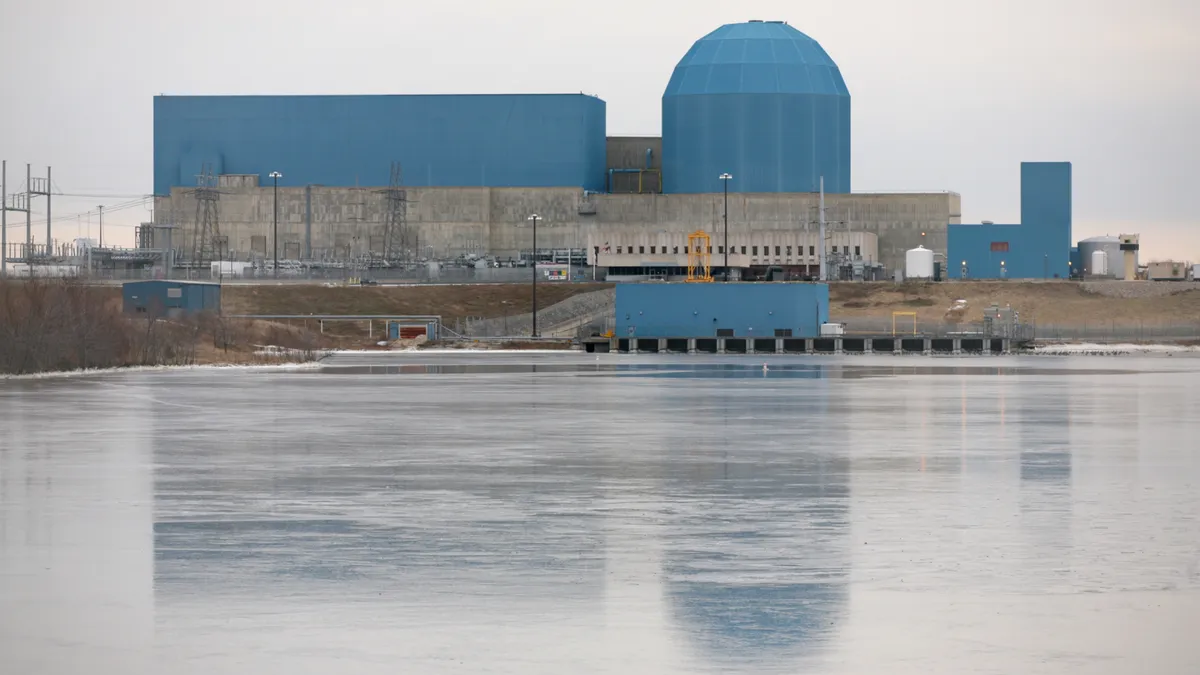Dive Brief:
-
Separate plaintiffs have filed two petitions to halt the June 1 implementation of Illinois’ recently enacted law instituting zero emission credits (ZECs) for two Exelon nuclear plants.
-
In the petitions, filed with the U.S. District Court for the Northern District of Illinois, the plaintiffs argue that they would suffer irreparable harm from the implementation of the ZEC payments.
- The plaintiffs – one is a group of electric power generators, the other a group of local citizens and business owners – say the ZECs intrude upon the Federal Energy Regulatory Commission’s exclusive jurisdiction over wholesale power markets, would have “a disruptive effect on energy auctions,” and would raise electricity prices.
Dive Insight:
The Illinois injunction request comes just as a federal district court in New York was hearing oral arguments on motions to dismiss a complaint about the New York Public Service Commission’s ZEC program.
At the hearing, Judge Valerie Caproni focused questions regarding intrusion on FERC’s authority on whether ZECs are “tethered” to the wholesale market and how ZECs are legally distinct from permissible renewable energy credits, according to the State Power Project.
Those arguments are nearly identical to the questions at hand in the Illinois case. There, the Electric Power Supply Association and a group that includes the village of Old Mill Creek and Ferrite International, among others, will have to convince the Judge Manish Shah they would suffer irreparable harm without the injunction, that they are likely to win the case on its merits, and that the balance of equities supports the injunction.
In addition to the legal jurisdiction and financial arguments, the plaintiffs argue that the ZEC program is an obstacle to the goals of competition and low prices called for in the state’s public utilities law.
The PJM Interconnection’s independent market monitor has also filed to intervene in Illinois against the state’s ZEC.
Other states, such as New Jersey and Connecticut, are also seeking to legislate subsidies that would give financial aid to in-state nuclear plants. These "around market" actions affecting wholesale power markets will be the subject of a Federal Energy Regulatory Commission technical conference at the beginning of next month.














